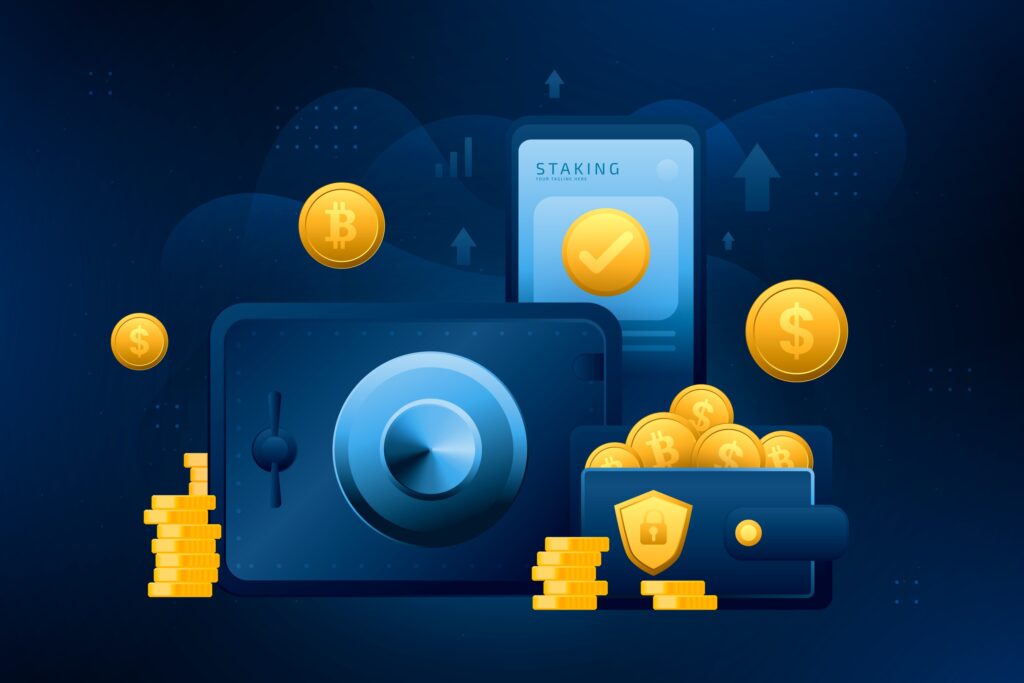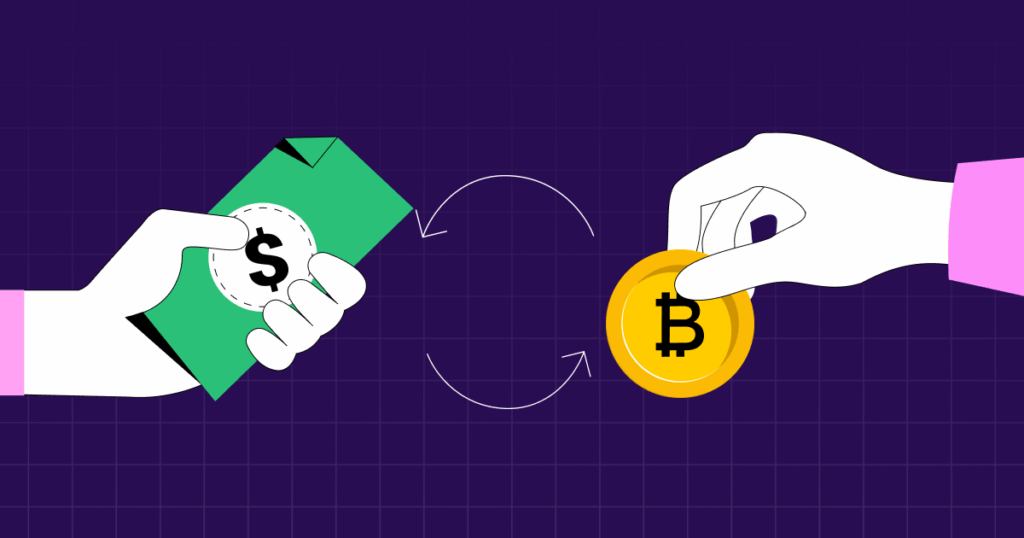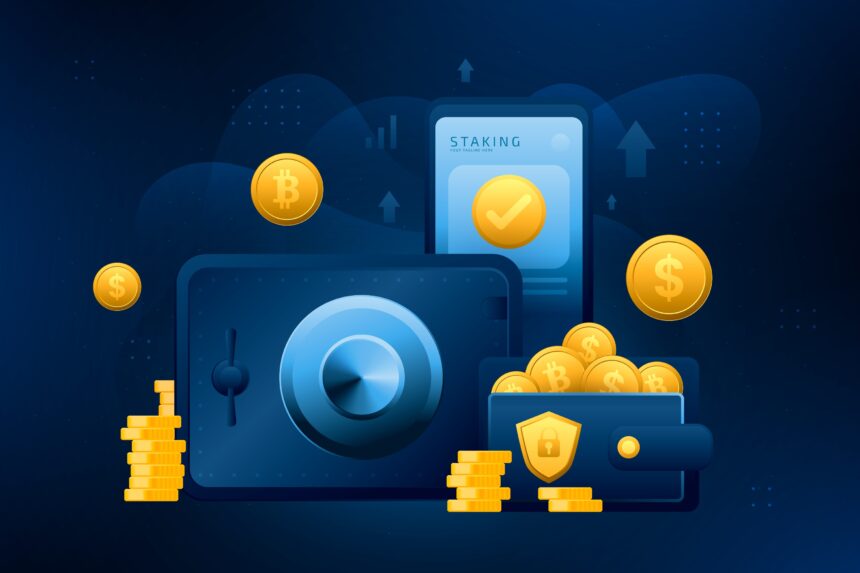In this article i will discuss the Is Staking and Delegating Crypto the Same Thing. While both mechanisms ultimately generate rewards for holders, investors frequently misconstrue them as identical.
Staking requires holders to commit their assets directly to the network—thereby participating in consensus—whereas delegating permits holders to transfer custodial authority to a third-party validator for a share of the received rewards. Clarity on these subtleties is essential for aligning individual risk tolerance and liquidity preferences with appropriate earning strategies, thus informing a more efficient capital allocation.
What is Staking Crypto?
Staking cryptocurrencies involves the deliberate confinement of digital assets within a blockchain protocol to facilitate core functions, including transaction validation and network fortification. In reciprocal compensation, participants accrue rewards, conventionally disbursed as supplementary tokens.

Through this mechanism, staking bolsters both the integrity and decentralization of the network while providing holders with a source of passive yield.
Participation typically necessitates a fixed-term lock of the assets, with anticipated returns calibrated to the quantum of tokens denominated and conditioned by the protocol’s governing parameters as well as by collective involvement in the staking ecosystem.
What is Delegating Crypto?
Delegating cryptocurrency entails entrusting digital assets to a credible validator for the purpose of contributing to network consensus, thus obviating the need for an end-user to engage with the underlying technical intricacies.

In contrast to the self-directed staking model, where tokens remain immobile within a user-controlled wallet, the delegation paradigm permits the user to accrue passive rewards while the validator executes transaction verification and upholds overall network security.
Such an arrangement is particularly suited to novice participants or to those who prefer an ultra-minimalist operational posture. Compensation is ordinarily apportioned between the validator and the delegator according to the established norms and performance metrics of the underlying protocol.
Is Staking and Delegating Crypto the Same Thing

Staking and delegation both contribute to the proof-of-stake mechanism but operate via distinct processes. Staking requires the operator to commit their coins directly to the blockchain, thus participating personally in transaction confirmation and network security; this model affords maximum control and entails the corresponding operational obligations.
Delegation, conversely, permits the holder to entrust their coins to a validator, who executes the requisite cryptographic duties in exchange for a portion of the staking yield; the original holder retains the ability to withdraw and re-delegate without forfeiting ownership. In summary, staking demands active involvement, while delegation achieves a comparable impact with reduced operational burden.
Key Differences Between Staking and Delegating
| Feature | Staking | Delegating |
|---|---|---|
| Control | You lock and manage your coins directly. | Coins are assigned to a validator who handles the process. |
| Technical Involvement | Requires understanding of network operations and staking process. | Minimal technical knowledge needed; validator manages tasks. |
| Risk & Rewards | Full exposure to network risks; earn full rewards. | Shared rewards with validator; lower technical risk. |
| Flexibility | May have fixed lock-up periods and limited withdrawal options. | Easier to switch validators or withdraw coins depending on network rules. |
| Suitability | Ideal for experienced users seeking full control and higher rewards. | Suitable for beginners or hands-off investors seeking passive income. |
Which One Should You Choose?
Selecting between staking and delegating in the cryptocurrency space hinges on user expertise, risk appetite, and desired engagement:
Staking appeals when autonomy is paramount, technical skills are present, and maximised yield is the goal. Users prepared to execute and sustain node software, monitor network health, and bear associated risks derive the high rewards commensurate with the high responsibilities.
Delegation fits novices or participants favouring minimal interaction. By assigning authority to a trusted validator, holders receive periodic rewards with no node management, software updates, or networking intricacies. Valihttps://coinroop.com/multi-bridge-routing-protocols-for-defi/dators take a commission, resulting in diluted rewards, yet this trade-off is low friction.
Pros and Cons Staking and Delegating Crypto
Pros and Cons Staking
Pros:
- Retains custodial authority, maintaining exclusive control of the holding.
- Potential yield is generally elevated, rewarding commitment of the asset.
- Active contribution to the security and integrity of the underlying blockchain.
Cons:
- Requires a substantial understanding of network mechanics and node operation.
- Exposure to slashing events or network vulnerabilities amplifies overall risk.
- Tokens may be subject to predetermined lock-up or unbonding durations, constraining access to liquidity.
Pros and Cons Delegating
Pros:
- Intuitive interface allows newer participants to stake with minimal setup.
- Receives yield without the overhead of hardware, software, or operational upkeep.
- Lower technical exposure concentrated within the delegator rather than on individual hardware or software.
Cons:
- Compensatory splits reduce net yield, as a portion is allocated to the selected validator.
- Delegator forfeits granular control, with transaction authorisation and fine adjustments managed by the validator.
- Actual yield and network security exposure are contingent on validator uptime, fee structure, and operational integrity.
Key Risks of Staking and Delegating
Staking Risks:
Slashing Events: Nodes that behave incorrectly—or that are affected by network-layer faults—can trigger slashing, leading to a permanent and quantifiable loss of a portion of your staked tokens.
Exposure via Lock-up: Many protocols impose predefined epochs within which staked assets remain illiquid, thereby constraining your ability to respond to market dynamics.
Cohesive Vulnerability: Protocol-wide vulnerabilities, including undiscovered bugs, denial-of-service attacks, or prolonged adverse consensus conditions, can materially erode expected return or, in extreme cases, principal.
Delegation Risks:
Validator Reliability: Should your chosen validator consistently miss attestations or blocks, overall yields can decline, and in rare circumstances, slashing can extend to delegated balances.
Residual Fee Structures: Validator economies extract a percentage of gross rewards, thereby diluting the yield that ultimately accrues to the delegator.
Custodial Trust Assumption: By delegating, you accept a degree of reliance upon the validator’s operational integrity, including cryptographic key custody and transaction propagation.
Best Practices and Security Tips

Opt for Established Protocols and Validators: Engage only with networks that command industry trust and select validators boasting long-standing, transparent performance records.
Spread Risk Across Multiple Assets: Disperse holdings among various validators and staking methods to mitigate vulnerabilities associated with single points of failure.
Verify Lock-In and Unbonding Durations: Scrutinize both staking lock-in and unbonding schedules to preclude unexpected liquidity constraints.
Secure Private Cryptographic Keys: Employ certified hardware wallets or rigorously secured software wallets to shield keys against unauthorized access.
Continuously Assess Yield and144 Validator Behaviour: Routinely evaluate the yield and operational metrics of validators, migrating to superior options when necessary to sustain optimal returns.
Remain Informed of Governance and Security Developments: Monitor protocol roadmaps, governance votes, and security bulletins to pre-empt vulnerabilities introduced by changes.
Conclusion
Staking and delegating are both mechanisms for generating yield in proof-of-stake ecosystems, yet they diverge in structure and user requirements. The staking model mandates active, informed participation; stakeholders operate and maintain a node or validator, retaining custody of their tokens and earning the highest marginal yield, which is balanced by the obligation of software upkeep, security audits, and exposure to slashing penalties.
The delegating model, by contrast, permits users to appoint a validator of their choice, retaining no custody of the underlying tokens while transferring governance to the validator. This reduces the technical barrier to entry, affords a layered security model, and generates predictable emissions—albeit at the expense of diluted rewards, as a portion must compensate the proxy.
A nuanced comprehension of slashing dynamics, commission structures, lock-up periods, and protocol roadmaps enables investors to align their reward-generating strategy with their risk appetite, maturity in the domain, and technical aptitude.
FAQ
Can I do both staking and delegating at the same time?
Yes, some networks allow you to stake directly while also delegating a portion of your coins to validators.
Do all cryptocurrencies support staking and delegating?
No, only cryptocurrencies using Proof-of-Stake (PoS) or similar consensus mechanisms support staking and delegation.
Is delegating safer than staking?
Delegating reduces technical risk because the validator handles operations, but it still carries risks like shared rewards and validator reliability.









